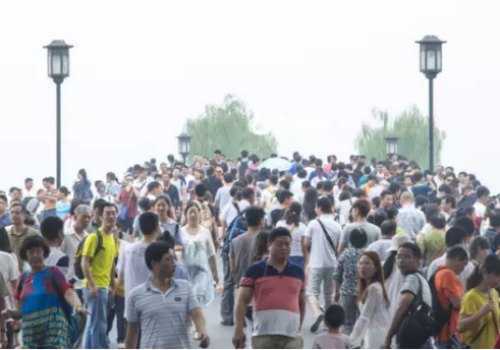On September 4 & 5, world leaders convened in the city of Hangzhou for the annual G20 summit. It marked China’s first time as host of the international forum. Some highlights of the summit included the adoption of the Hangzhou Consensus and plans for implementing the UN 2030 Sustainable Development Goals, as well as the Paris Agreement.
Since its conclusion, the summit has generally been regarded a success, especially for China. Being the G20’s hosting country, the summit gave China an opportunity to open its doors and not only present its ideas and viewpoints to the world, but also show its cities and landscapes from their best side – especially the city of Hangzhou has seen a boom in tourism after the summit.
Marketing the City
Before and during the G20, China has made ample efforts to put a spotlight on Hangzhou, one of China’s seven ancient capitals and one of the country’s most important tourist cities. In various Hangzhou G20 promo campaigns, the city has presented itself as a place full of cultural heritage, folk arts, and scenic views.
Besides the various videos showcasing what Hangzhou has to offer, there was also the the G20 concert titled “Hangzhou, A Living Poem”, which featured a symphony concert and gala on water directed by Zhang Yimou, who also produced the 2008 Olympic opening ceremony. The hour-long performance was held on a stage at Hangzou’s famous West Lake, highlighting its stunning scenery.
Chinese netizens on Sina Weibo praised Zhang’s work. One netizen (@茶之风) said: “A moonlit night on the spring river, the Impression of West Lake is as good as the Beijing Olympic ceremony.”

According to a poll by the South China Morning Post, 52% of participants deemed the West Lake is the most unmissable experience for G20 visitors to Hangzhou.
Hometown of Alibaba
Jack Ma, founder of e-commerce giant Alibaba, also further promoted the city in a 5-minute video that discusses the important role Hangzhou plays as a China’s tech and entrepreneurship hub. Jack Ma is a native of Hangzhou, where the Alibaba Headquarters are also based. Ma says in the video: “I feel so proud of this city. No matter where in the world I go I always miss it. Every 10 or 15 days I wanna be back.”
Hangzhou’s image as the hometown of Alibaba was further emphasized when the prime ministers of Canada and Italy also took some time to visit the headquarters.
Tourist Boom
Since the end of the G20 summit, Hangzhou has seen a sharp increase in tourism, especially during the weekend of 10/11 September directly following the end of the summit. Apart from all promo videos and Zhang’s concert, the various pictures of world leaders roaming around the city to visit scenic spots and eat local food allegedly also played an important role in the tourism boom.

Argentine President Mauricio Macri, for example, was photographed biking around Hangzhou with his wife Juliana Awad. Brazilian president Michel Temer was spotted shopping around the city and buying leather shoes.


The post-summit bustling Hangzhou forms a stark contrast to the pre-G20 urban scenery; the city was then even described as a “ghost town” as factories were shut down and one third of the city’s population was ‘convinced’ to leave town in preparation of the summit.
The Downside of Popularity
Currently, Hangzhou is anything but a “ghost town”. According to one travel agency in China, the number of tickets booked to Hangzhou have now increased dramatically – twice as many as those sold last year around the same time. The trend is expected to continue as Chinese national holidays come up later in September and October.

Although the tourism boom is a post-summit “bonus” for the city of Hangzhou, there are also some worries about the stream of visitors. Some netizens expose the mess they leave around town; noodle cups, pet bottles, and paper cups are left behind all around the city’s scenic spots by negligent visitors.

One sanitation worker told local media that as much as 14 ton of garbage was collected in the city within one day recently – about five time more than previous periods.
There are also reports of people using local parks as public toilets.
Some spots were reportedly so crowded that people felt unwell and needed medical assistance.



Not just the locals, but also the tourists are suffering from Hangzhou’s current “tourist problem”. Many netizens complain that they could hardly get through and that several places in Hangzhou were just so overcrowded with tour groups that it was no use going there.

Some netizens even wonder if Hangzhou will ever be the same: “The city of Hangzhou has changed the G20, but has the G20 now also changed the city of Hangzhou?”
It will undoubtedly still take some time before Hangzhou will regain some of its pre-G20 tranquility. Until that time, some netizens advise people not to visit the city, that is simply “packed like sardines”.
– By Yanling Xu and Manya Koetse
Follow @WhatsOnWeibo
©2016 Whatsonweibo. All rights reserved. Do not reproduce our content without permission – you can contact us at info@whatsonweibo.com.
The post Packed Like Sardines – Hangzhou Sees Huge Wave of Tourism After G20 appeared first on What's on Weibo.





















